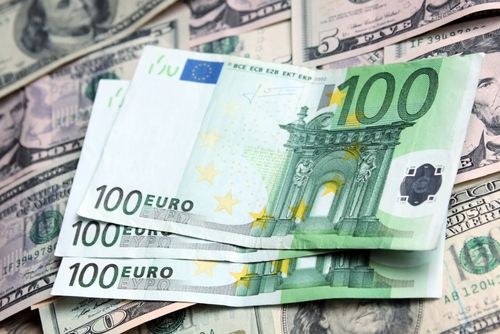
EUR/USD weakened despite a softer US Dollar, as escalating trade tensions between the US and China weighed on market sentiment.
German Chancellor-in-waiting Friedrich Merz warned, "President Trump’s policies are heightening the risk of an earlier-than-expected financial crisis.”
Fed’s Kashkari noted that the economic impact of Trump’s trade war would hinge on how trade uncertainties are resolved.
The EUR/USD pair edges lower during Asian trading hours on Monday, hovering around 1.1360 after posting gains in the previous two sessions. The pair appreciated due to weakening US Dollar (USD), which has come under pressure amid escalating trade tensions between the US and China—rekindling concerns of a global recession.
China's Ministry of Finance announced a sharp hike in tariffs on US goods on Friday, increasing duties to 125% from 84%. This move came in response to US President Donald Trump’s decision a day earlier to raise tariffs on Chinese imports to 145%. Meanwhile, to de-escalate trade friction, the European Union (EU) announced a 90-day suspension of its planned retaliatory tariffs, echoing a similar pause by Washington to encourage renewed dialogue.
In an interview with Handelsblatt on Saturday, German Chancellor-in-waiting Friedrich Merz expressed concern over Trump’s economic approach, stating, “President Trump’s policies are increasing the risk that the next financial crisis will hit sooner than expected.” Merz also voiced support for a new transatlantic trade agreement, adding, “Zero percent tariffs on everything—that would be better for both sides.”
The US Dollar Index (DXY), which tracks the USD against a basket of six major currencies, extended its losses for the third consecutive session, slipping below 100.00 and nearing Friday’s three-year low. The continued decline reflects eroding investor confidence amid downbeat economic indicators and dovish central bank commentary.
The University of Michigan’s sentiment index dropped to 50.8 in April, while one-year inflation expectations surged to 6.7%. The US Producer Price Index (PPI) rose 2.7% year-over-year in March, down from 3.2% in February, with the core rate easing to 3.3%. Jobless claims ticked up to 223,000, although continuing claims declined to 1.85 million—pointing to a mixed picture in the labor market.
On Sunday, Minneapolis Federal Reserve President Neel Kashkari said on CBS' Face the Nation that the economic fallout from Trump’s trade war would largely depend on how quickly trade uncertainties are resolved. “This is the biggest hit to confidence that I can recall in the 10 years I’ve been at the Fed—except for March 2020 when COVID first hit,” Kashkari remarked.
* The content presented above, whether from a third party or not, is considered as general advice only. This article should not be construed as containing investment advice, investment recommendations, an offer of or solicitation for any transactions in financial instruments.


